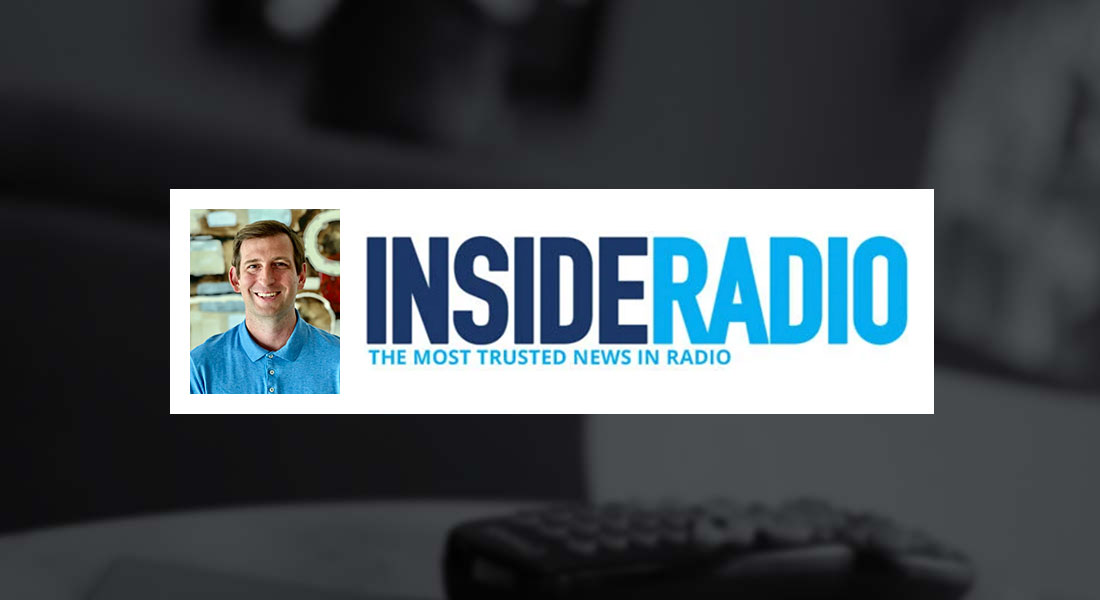Expect to see fewer platform exclusives and don’t worry about podcasting moving away from an ad-supported model. Those are two of the messages that Jason Endres, Associate Director of National Audio at Active International, has for marketers.

Endres says while there are several companies “trying to break the ad-based models” by offering subscription options, he thinks the audio space is unlikely to follow the video model. “While subscription services have been bountiful in the streaming video marketplace, questions still arise over financial viability in the subscription model in podcasting,” he says. “There is less of an appetite from podcast listeners for a paid service vs. video consumers as well. With well over one million podcasts in existence, there is so much free content out there to access.”
Endres says the small impact of the three-year old subscription service Luminary has had less of an impact on the podcast market than many believed it would when it launched in 2019. And even as some shows opt to make ad-free subscriptions available to super-fans via a growing list of subscription options, he thinks most publishers will stick with the industry’s tried-and-true. “Podcast consumers have shown they support the current ad supported content model and I expect subscription supported networks to struggle to maintain viability,” Endres says.
The deep pockets of companies like Spotify and Amazon are also less likely to ink more podcast exclusive deals according to Endres. With paydays ranging from the reported $200 million deal for The Joe Rogan Experience on Spotify or $60 million for SmartLess on Amazon Music, Endres thinks exclusives may be running their course.
“Publishers brought these shows into their portfolio to grow their overall listenership and increase their unique audiences. As return on investment is sorting itself, I see a trend away from show exclusives,” Endres says. “A publisher’s focus is on generating as much ad revenue as possible. Podcast listeners have had the luxury for two decades to listen to podcasts on their favorite website or podcast app. Spotify and Wondery have made the effort to break that mold, but there is belief that negatively impacts a podcast. Podcasts lose their influence and reach when they go to an exclusive platform.” He thinks it is similar to when Howard Stern moved from FM radio to satellite. Financially, the $100 million deal was beneficial to Stern, but Endres says the price paid was a smaller reach and a sphere of influence that lessened significantly.
In terms of advertising, Endres predicts there will be more podcast audience data to share with marketers in the coming year, especially on the show level where he says there has been a “wide disparity” in the availability of data. The result has made it difficult to compare one podcast to another.
“With Nielsen and Triton getting more involved in podcast analytics, I’m expecting more data to come to light in 2022; ultimately helping marketers and brands better determine podcasts that align with their marketing objectives,” he said.
Endres also expects to see programmatic ad buying to continue taking root as publishers look to grow revenue beyond the host-read ads that got podcasting to its first $1 billion in revenue.
“For podcasting to get to be a $2 billion industry, audience-based ad buying will need to become a major factor,” he said. “As companies like iHeart, Pandora, and Spotify continue to invest in the space, their experience in streaming audio along with their partnerships with ad tech companies, will further allow them to offer audience-based ad buying. Yes, there are opportunities to buy by demo, geo-target, and some behavioral targeting today, but that will grow significantly in 2022. The opportunity for publishers to tap into a marketer’s programmatic ad budgets is lucrative.”
Marketers should also expect to see more content in the sports betting realm, predicts Endres. While some shows may come from traditional publishers or indie hosts, the deep-pocketed sports betting brands are largely driving the gains as companies like Cumulus Media and BlueWire align with Wynn and FanDuel strikes up a $120 million four-year alliance with The Pat McAfree Show.
“McAfee has a significant and devout audience, but certainly not one that would garner a $30 million annual payment based on an audience and CPM model,” says Endres. “What we are seeing is the exponential potential of aligning a sports book with an audience. The ability to be exclusive provides so much potential long tail value for a sports book that it makes a multi-million-dollar partnership feasible.” He thinks as more states allow for online sports betting, Caesars, Draftkings, MGM, and Pointsbet and others will look at doing similar types of deals. “The rise of affiliate partnerships between sports betting companies and podcasts will be a boon for the category and content creators,” Endres says.



